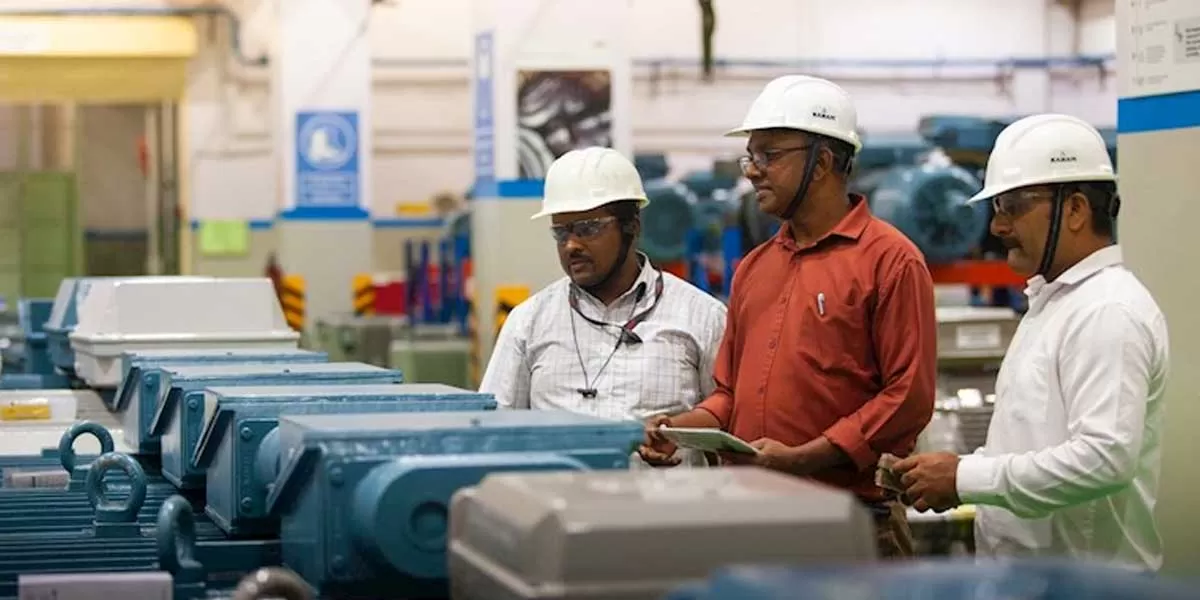ABB India's IEC low voltage (LV) motors business has achieved a significant milestone in energy conservation. Its installed base over the last 5 years has contributed to annual energy savings of over 500 gigawatt hours (GWh) for Indian industries which is equivalent to the annual energy consumption of Sikkim, a northeastern Indian state. With the rising awareness of energy efficiency in India, tier 2, 3 and 4 cities such as Ahmedabad, Indore, Raipur, Jamshedpur and others, are increasingly adopting high-efficiency motors across industries.
In 2023, ABB India?s IEC LV motors witnessed notable progress in the adoption of energy-efficient motors, with ~50% of orders being attributed to the supply of higher efficiency IE3 and IE4 motors.
ABB India's focus on energy-efficient motors is further demonstrated by the impressive growth in the quantity of IE4 motor sales which witnessed over 100% year-on-year increase. This surge in demand for IE4 motors not only contributes to substantial energy savings but also aligns with ABB's mission to enhance performance while minimizing environmental impact.
"This shift towards advanced motor technologies highlights the growing preference for sustainable solutions in the Indian market. ABB India's IEC LV Motors are not just driving industrial processes, but also revolutionizing energy savings across Indian industries. We are committed to providing innovative motion solutions that help industries achieve their sustainability goals. The significant energy savings realized through our high-efficiency motors are a testament to the value we bring to our customers and fostering environmental sustainability ", said Sanjeev Arora, President ? Motion Business, ABB India.
Since 2018, IE2 efficiency has been the minimum efficiency standard mandated (Minimum Energy Performance Standards - MEPS) for low-voltage motors in India. This regulatory change spurred the adoption of higher efficiency motors, such as IE3 and IE4, by Indian industries and MSMEs. Despite this progress, old installed base of low efficiency motors remains a significant roadblock to energy savings. Also, replacing old or rewound motors with energy-efficient motors can save energy significantly.
IE3 motors have ~20% lower losses than IE2, and IE4 motors have ~20% lower losses than IE3. However, IE3 and IE4 motors make up only ~18% of total motor production. Transitioning to higher-efficiency motors is crucial, as replacing IE2 with IE3 as MEPS, savings from one year of production could save over 1 TWh annually, while replacing IE2 with IE4 could save up to 2.1 TWh. The widespread adoption of higher efficiency motors is crucial for India to achieve its net-zero goals as over 70% of electricity consumed by industries are from motor-driven systems.
ABB India is at the forefront of driving the adoption of high-efficiency motors, a critical component in the energy efficiency movement across the world. ABB offers a wide range of high-efficiency motors, including those that meet IE3, IE4, and IE5 efficiency standards, designed to deliver significant energy savings and reduce operational costs for industries. With customized motor solutions tailored to specific industry needs, ABB motors ensure that industries achieve maximum energy efficiency in their operations. Sustainability is at the core of ABB?s motor business operations in India, exemplified through several impactful initiatives. ABB India?s motor factories in Bengaluru and Faridabad are green certified by IGBC under green factory building rating system, ensuring all operations meet stringent environmental standards. The business has achieved a notable 31% reduction of scope 1 and 2 greenhouse gas emissions in its operation as compared to its 2019 baseline. Furthermore, the motor facilities have installed in-house solar panels and are procuring the solar power from third party to meet its RE100 goal (100% renewable electricity). In waste management, the business has successfully diverted 97% of its total waste away from landfills and has also reduced water consumption by 6% as compared to 2019 baseline. These efforts showcase ABB India?s commitment to integrating sustainability into its core business practices, contributing significantly to environmental preservation and resource efficiency. ABB India leverages its local capabilities, expertise, and skilled workforce to manufacture high-quality LV motors domestically. This Make-in-India approach ensures reliable and efficient products tailored to Indian customers' needs, with quicker delivery time. By producing locally, ABB India contributes to the local economy, enhances productivity and operational efficiency across various industries





















